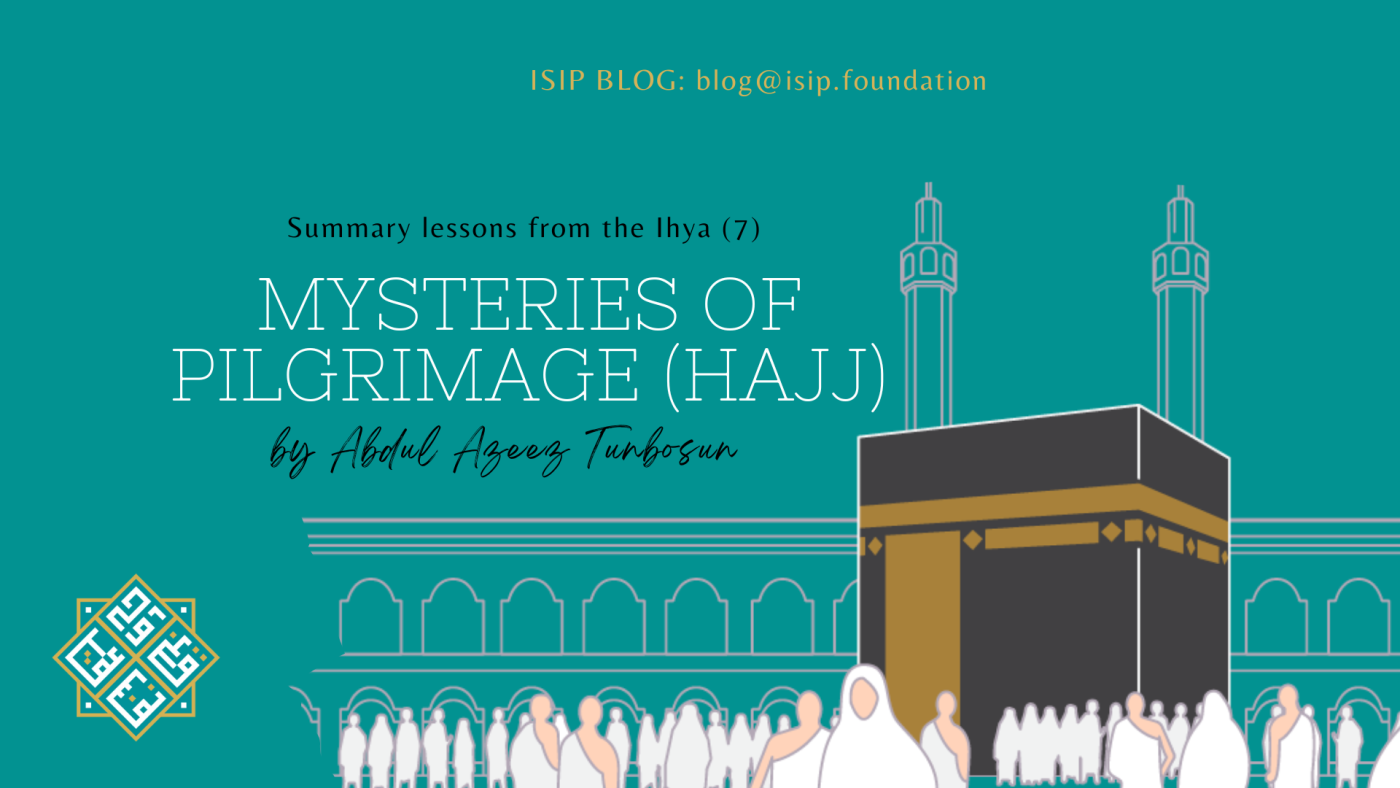
Rationally, it is easy to understand the wisdom behind other acts of worship except for the Hajj. For instance, the act of bowing or prostration indicates humility and humbleness, fasting controls your nafs and breaking your desires, Zakat benefits poor people and this goes for other acts of worship. As for Hajj, going to Arafat, circumambulating Kaaba, throwing stones, etc, the only rationale is that you are a servant of Allah and you are there to respond to His call, so the pilgrim chants Labayka… ‘Here I am, O my Lord, Here I am. Here I am for Your service.’ all through.
Some of the inner etiquettes to be observed by an intending pilgrim are yearning and longing to visit the prescribed places and to perform all of the acts of worship similar to the feelings you would have when visiting your loved ones. However if one does not feel the yearning and longing, it should not prevent one from responding to the call, servitude to the Creator is enough reason to be excited about it, and then one can ask Allah to unveil its beauty.
The whole of hajj activities is a parable of the human journey from Allah to Allah, the journey of the soul. The deprivation from lowly desires, the feeling of being destitute before Allah, the hard work and the simple lifestyle to be embodied during hajj are in reality the true trait of those seeking mercy and closeness to Allah in this life. The higher merit, when the pilgrim intends to meet Allah at the holy sanctuary, is the gift of gazing upon the noble countenance of Allah (swt) in the abode of eternity, the greatest desire in paradise.
THE ONCE-IN-A-LIFETIME ACTIVITIES:
Unlike other acts of worship, Hajj must be performed only once in a lifetime; The Five daily prayers (salawaat) must be performed every day, the Jumuah to be performed every week, the fasting in the month of Ramadan must be observed yearly, just as Hajj is prescribed for a once-in-a-lifetime, reflects the event of the day of judgement is a one-time experience, hence, all of the activities of the hajj are parables for the events of the Day of judgement.
THE IHRAM CLOTHING:
By buying the two garments, the person should remember they will be buried and shrouded in the same type of clothing after death. It is also a reminder that you may not return from the hajj.
LABAIKA ALLAH… Here I am, O my Lord,
The moment you reach any of the stations (Miqat) to chant labaika… is a similitude of our response to Allah on the plain, when He asked…
“Am I not your Lord?” They said, “Yes indeed, we bear witness…”
Surah Al A’raf 7:172
At that point, a person should hope that Allah accepts them. And this will help to develop reverence (kushoo) and humility before Allah during hajj and in every other act of worship.
ENTERING MACCA , THE KAABA, TAWAF…
The entry into the haram reflects entering Allah’s protection and seeking protection from hellfire, hence sight of the Kaabah is one of the scenes that should give you the feeling of being in the courtyard of Allah, and the tawaf should be seen as an act of worship and holding on to the Kaaba is a moment to pour out your heart as though you are in the presence of the King.
SAFA AND MARWAH
Safa and Marwah is a demonstration of a servant in the courtyard of the king’s house, demonstrating sincerity in service (to and fro) and expecting to be acknowledged and accepted with mercy.
ON THE PLAIN OF ARAFAT
“Verily, Allah Almighty boasts to His angels of the pilgrims on the afternoon of the day of Arafat, saying: Look at My servants, coming to Me dishevelled and dusty.” Hadith
The standing at Arafat then should remind you of the day of judgement and just as people are standing in groups, on the day of judgement, Allah says:
(Remember) the day when We will call every people with their Imam; then whoever is given his book in his right hand, these shall read their book, and they shall not be dealt with a whit unjustly.
Surah al Isra 17:71
And as the sun sets, you may feel this remorse that you could have done better just as we will be remorseful we could have done better in life on the day of judgement. And after the hajj, the reminiscence of hajj activity should instil in us a form of rebirth and renewal of our life.
VISITING MEDINA AND THE PROPHET
The Prophet said,
“He, who visits me after my death seems as if he visited me during my lifetime.”
One should remember that it is the city chosen by Allah (swt) for His messenger (saw). And in this city, he laid the foundation of the obligations and duties enjoined by his Lord. Imagine you walk into this city with regrets about missing his company. And while visiting the Prophet, imagine how you would have approached him had he been alive. Thus, learn and observe all the etiquettes of visiting the beloved.
In conclusion, it is incumbent upon every intending pilgrim to observe these inner and outer etiquettes before and while on the hajj. May Allah count us among the pilgrims and accept it from us.
